Fosfomycin, also known by its brand names Monurol and Zirgan, is an antibiotic medication that is used to treat various infections caused by bacteria. It belongs to the class of drugs known as phosphonic acids and is classified as a broad-spectrum antibiotic.
Fosfomycin works by inhibiting the synthesis of peptidoglycan, a vital component of the bacterial cell wall. This action weakens the bacterial cell wall and ultimately leads to the death of the bacteria.
Do’s and Don’ts
Do not take fosfomycin if you are allergic to it or any of its components. Prior to taking this medication, inform your healthcare provider if you have any allergies, especially to antibiotics.
Fosfomycin should be used with caution in individuals with renal impairment, as dose adjustments may be necessary. It is important to disclose any history of kidney problems or any ongoing kidney disease to your healthcare provider before starting treatment with fosfomycin.
Inform your healthcare provider about all the medications you are currently taking, including over-the-counter drugs, vitamins, and herbal supplements, to ensure that there are no potential drug interactions with fosfomycin.
Potential Side Effects
Fosfomycin can cause several side effects, although not everyone may experience them. The most common side effects include:
- Upset stomach
- Nausea
- Diarrhea
- Headache
- Vaginal itching or discharge (in females)
If any of these side effects persist or worsen, contact your healthcare provider for further guidance.
Administration
It is essential to follow the prescribed dosage and administration instructions provided by your healthcare provider. Fosfomycin is available in different formulations, including granules for oral suspension and eye drops.
If you are taking fosfomycin as an oral suspension, dissolve the granules in water and take it on an empty stomach. It is recommended to take fosfomycin at least 2 hours before or 2 hours after meals.
If you miss a dose, take it as soon as you remember. However, if it is close to the time for your next dose, skip the missed dose and continue with your regular dosing schedule. Do not double the dose to make up for the missed one.
In case of an overdose, seek immediate medical attention or contact a poison control center. Symptoms of an overdose may include severe nausea, vomiting, abdominal pain, and diarrhea.
What to Watch Out For
Fosfomycin may interact with certain medications, altering their effectiveness or resulting in adverse effects. Inform your healthcare provider about all the medications you are taking, particularly:
- Anticoagulant drugs, such as warfarin
- Probenecid, used to treat gout and some types of infections
- Aminoglycoside antibiotics, such as gentamicin and tobramycin
- Methotrexate, used in the treatment of cancer and autoimmune diseases
It is crucial to inform your healthcare provider about any other medical conditions you have, especially kidney problems, as this may affect the dosage and safety of fosfomycin.
FAQ
-
Q: How long does fosfomycin take to work?
A: The onset of action may vary depending on the specific infection being treated. It is important to complete the full course of treatment as prescribed by your healthcare provider, even if symptoms improve before the completion of treatment. -
Q: Can I drink alcohol while taking fosfomycin?
A: It is generally recommended to avoid alcohol consumption while taking antibiotics, including fosfomycin, as it may increase the risk of side effects and decrease the effectiveness of the medication. -
Q: Can fosfomycin be used during pregnancy?
A: Fosfomycin should only be used during pregnancy if clearly needed and under the supervision of a healthcare provider. It is important to discuss the potential risks and benefits with your healthcare provider before using fosfomycin during pregnancy. -
Q: Can fosfomycin be used in children?
A: Fosfomycin is generally considered safe and effective for use in pediatric patients. However, the specific dosage and administration instructions may vary depending on the age and weight of the child. Consult a pediatric healthcare provider for appropriate dosing recommendations. -
Q: Can fosfomycin cause allergic reactions?
A: Allergic reactions to fosfomycin are rare but can occur. Seek immediate medical attention if you experience symptoms of an allergic reaction, such as rash, itching, swelling, dizziness, or difficulty breathing.
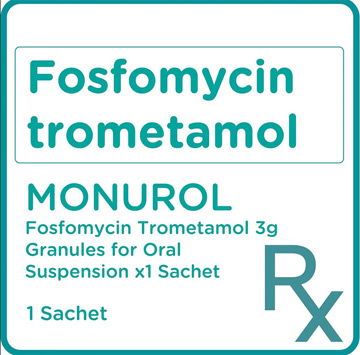
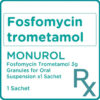
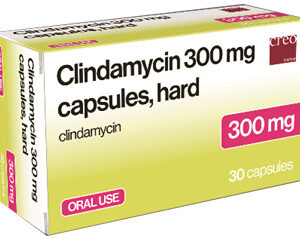
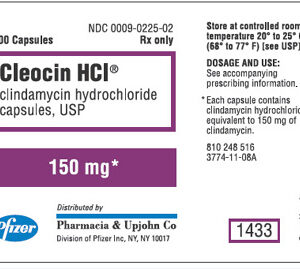
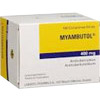
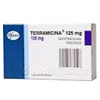
Reviews
There are no reviews yet.